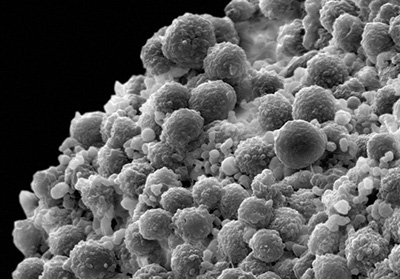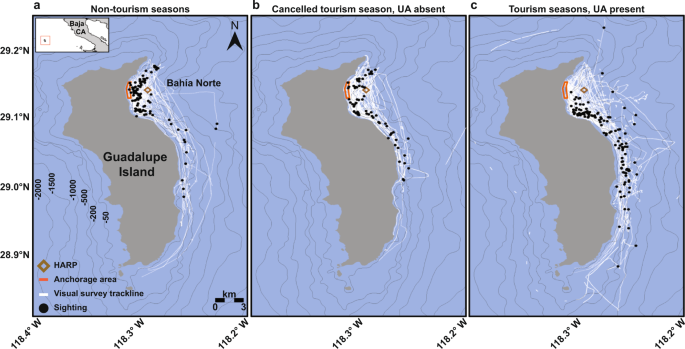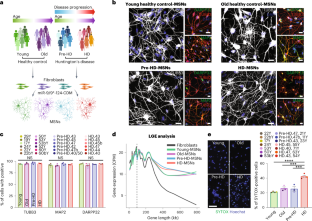現在のスクリーニングツールは不完全であり、時に誤解を招く。遺伝子解析を追加することで、医師が生命を脅かす疾患のリスクをより正確に推定できる。 Current screening tools are imperfect and sometimes misleading; using additional genetic analysis can help physicians more accurately estimate risk of life-threatening disease
2022-10-31 カリフォルニア大学サンディエゴ校(UCSD)

A scanning electron micrograph depicts a clump of prostate cancer cells. Photo by Cell Image Library
個別のリスク評価を決定する現在の臨床ガイドラインでは、人種や民族性、家族歴に焦点が当てられている。この研究では、非常に大規模で多様な縦断的コホートに基づいて、多遺伝子スコアがかなり多くの情報を追加することを実証した。患者さんや医師は、どの人が最も悪性前立腺癌のリスクが高いかについて、より良い考えを持つことができる。
<関連情報>
- https://today.ucsd.edu/story/genetic-score-predicts-risk-of-lethal-prostate-cancer
- https://academic.oup.com/jnci/advance-article-abstract/doi/10.1093/jnci/djac199/6777270
Million Veteran Programにおけるあらゆる前立腺癌、転移性前立腺癌および致死性前立腺癌の多遺伝子リスク Polygenic risk of any, metastatic, and fatal prostate cancer in the Million Veteran Program
Meghana S Pagadala,Julie Lynch,Roshan Karunamuni,Patrick R Alba,Kyung Min Lee,Fatai Y Agiri,Tori Anglin, Hannah Carter,J Michael Gaziano, Guneet Kaur Jasuja, Rishi Deka,Brent S Rose,Matthew S Panizzon, Richard L Hauger,Tyler M Seibert
Journal of the National Cancer Institute Published:28 October 2022
DOI:https://doi.org/10.1093/jnci/djac199
Abstract
Background
Genetic scores may provide an objective measure of prostate cancer risk and thus inform screening decisions. We evaluated whether a polygenic hazard score based on 290 genetic variants (PHS290) is associated with prostate cancer risk in a diverse population, including Black men, who have higher average risk of prostate cancer death but are often treated as a homogeneously high-risk group
Methods
This was a retrospective analysis of the Million Veteran Program (MVP), a national, population-based cohort study of US military veterans conducted 2011-2021. Cox proportional hazards analyses tested for association of genetic and other risk factors (including self-reported race and ethnicity and family history) with age at death from prostate cancer, age at diagnosis of metastatic (nodal or distant) prostate cancer, and age at diagnosis of any prostate cancer.
Results
590,750 male participants were included. Median age at last follow-up was 69 years. PHS290 was associated with fatal prostate cancer in the full cohort and for each racial and ethnic group (p<0.001). Comparing men in the highest 20% of PHS290 to those in the lowest 20% (based on percentiles from an independent training cohort), the hazard ratio for fatal prostate cancer was 4.42 [95%CI: 3.91-5.02]. When accounting for guideline-recommended risk factors (family history, race and ethnicity), PHS290 remained a strong independent predictor of any, metastatic, and fatal prostate cancer.
Conclusions
PHS290 stratified US veterans of diverse ancestry for lifetime risk of prostate cancer, including metastatic and fatal cancer. Predicting genetic risk of lethal prostate cancer with PHS290 might inform individualized decisions about prostate cancer screening.


